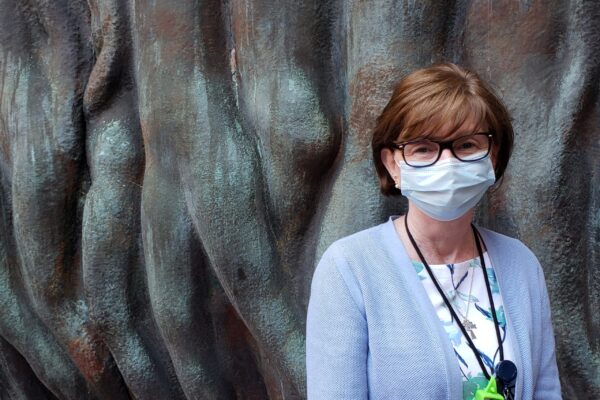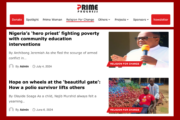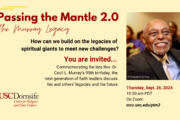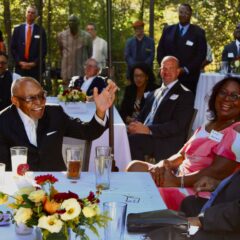This article was originally published in Global Sisters Report, with the support of CRCC’s global project on engaged spirituality.
NEW YORK — In the first three months of the pandemic, Sr. Mary Catherine Redmond trod through pain, agony and loss.
“There has been a lot of death in this population,” the 58-year-old Presentation Sister said of the residents of the New York City borough of the Bronx. “That hurts so much.”
Like other sisters on the front lines responding to the COVID-19 pandemic — each ministering in their own ways according to their own gifts — Redmond’s decades-long service has been undergirded by a commitment to social justice.
But Redmond is now angry. She is “profoundly disturbed” by what happened to George Floyd, the man who died last month at the hands of a Minneapolis police officer, and “to so many of our black brothers and sisters.”
“This is a horrible time in our country,” Redmond said. “Horrible on many levels but most disturbing at our core where we still look at another person as ‘other’ and judge them so quickly by the color of their skin, their ethnic background, their religious beliefs, political stance, economic access.”
By contrast, she said, the staff of North Central Bronx Hospital in the Norwood section of the Bronx has responded to the COVID-19 crisis “regardless of race, ethnicity, economic station,” knowing that “all lives mattered. … We risked it all, working together to save the life of each person.”
“We’ve fought so hard against COVID, and to see this [situation] now is so disheartening,” said Redmond, a Sister of the Presentation of the Blessed Virgin Mary and chief physician assistant at North Central Bronx, a public facility.
The pandemic united Redmond and other North Central staff members in a way nothing else had in Redmond’s 21 years at the hospital. And it affirmed Redmond’s passionate, core belief as a Catholic sister: We are “all in one,” and Jesus’ ministry is a call for people to recognize that basic truth.
Redmond’s personal and communal prayer “compels me to go out to others,” she said. Whatever difficulty or tragedy she encounters draws her back to prayer. “It’s like a circle that gets deeper and deeper.”
The North Central Bronx Hospital treats the underserved and underinsured. The facility is two blocks from a subway line that parallels a major thoroughfare, Jerome Avenue, a bustling commercial area where pizza joints compete for customers seeking $1 pizza slices.
Inside the facility, things are calmer now than they were in March and April.
At times working nearly double her normal 36-hour week, Redmond and her colleagues all took staggered hourly shifts so they could help move people quickly through the hospital’s emergency room.
“There was so much adrenaline we experienced that it didn’t feel like so much work,” she told Global Sisters Report. “It was good working with people who understood what was happening. We were so supportive of each other.”
Both Redmond and her colleague Dr. Daran Kaufman, a pediatric physician and the hospital’s chief quality officer, agreed that “people rose to the challenge.”
Kaufman said the experience “taught me a lot about the resilience of the human spirit.”
Redmond agreed: “Everyone came to work, pitched in. We were a team. We are a team.”
The struggles of an unknown disease
Early cases of COVID-19 made Redmond and her colleagues realize “it was different than anything we had treated before.”
One man, an Uber driver, came in early March thinking he was having allergy problems. A COVID-19 test confirmed he had the virus. A chest X-ray, and the X-rays of other patients, revealed the real gravity of the situation.
“These were chest X-rays like we had never seen before. It wasn’t one spot, like you find in pneumonia,” she said. “This was all over the lungs.”
Luckily, the Uber driver, a Bronx resident, survived. But many patients did not. Many had not been able to self-quarantine.
“There were no places people could go,” Redmond said, especially when multiple family members had been exposed to the coronavirus.
That is a major injustice, and Redmond acknowledges an impatience with injustices of any sort, particularly when people do not respect each other.
In the rush of the last three months, she has gotten angry at times, even at patients, like the man who berated a hospital staffer with obscenities.
“If I see that, I’ll say, ‘The streets stop here, buddy. This isn’t the street,’ ” Redmond said.
She has also occasionally gotten mad at fellow staffers — though the dressing-down is always followed by an apology.
“I’m human like they are, and when the situation gets tough, I yell.”
Though the immediate crisis is contained and the numbers of illnesses and deaths are declining overall in the city, it is by no means certain that the COVID-19 crisis in the Bronx, the poorest of New York City’s five boroughs, will remain stable.
As of June 14, the Bronx still had the highest rate of COVID-19 cases among the boroughs — 3,254 per 100,000 people — and some Bronx neighborhoods have 50% infection rates, compared to nearly 20% in New York City as a whole.
The inequities present in the Bronx before the pandemic remain: high population density, poverty and lack of access to affordable health care.
Redmond addressed those issues in a series of searing and poignant columns for GSR, writing of the struggles and defeats as well as the victories that accompanied the camaraderie and sense of communal purpose of the last three months.
“I feel an overwhelming presence of God in my prayer and daily experiences as I walk to Calvary, carrying the cross as Simon of Cyrene and wiping the face as Veronica did,” Redmond wrote in an April 23 column.
“I know the prayer, ‘Father, if you could just take this cup away from me,’ and I know I am standing at the foot of the cross, as I walk through an ICU, see people clinging to life, and try desperately to connect them with their families.”
Now, as spring eases into summer, Redmond finds some relief. She no longer dwells on questions of guilt and whether she and others did enough.
“We gave all we had and did the best we could with an unknown disease,” she told GSR. “The amount of time, deep desire and commitment to providing the best care to our patients and their families were palpable among the staff.”
Still, emotions remain raw, given what she and others witnessed. In an interview at the hospital’s outdoor break area, Redmond did not stop from tearing up at times, her eyes reddening.
She is not afraid to hide crying. Crying is common, she said, and is triggered by a song or a memory of a patient who died.
Redmond knows her eyes are all-important now: “Now, I wear a mask that is suffocating and muffles my voice as it covers both my mouth and nose — over half of my face — and I pray to God that the compassion, regard and concern I hold for my patients at this time is expressed in my eyes,” she wrote in a March 31 column. “That is all I have now.”
And while the word “hero” is used a lot in New York City now, it is not a description that sits comfortably with Redmond.
“I have a hard time with that, being called a hero,” she said.
“I’ve just been doing what I had been doing for 21 years. I’ve just been doing my job.”
Kaufman said Redmond provides much-needed spiritual support for her colleagues as well as the patients.
“She bridged a wonderful gap between the provider and the patients, giving people support,” the physician said. “At that moment, that was so valuable.”
Vigilance is now the norm. Visitors entering the hospital building are screened for their temperatures, and personnel who administer COVID-19 tests all wear ample protective gear.
The gear is part of the “new normal,” as Redmond calls it.
This new normal also includes gearing up for a possible second wave of the pandemic: Bronx North Central is in the process of more than doubling the number of ICU beds.
“God willing [a second wave] won’t happen,” Kaufman said. But “we have to build on what we’ve learned in the last few months.”
The pull of religious life
Redmond’s call has its roots in growing up in “a social-justice-oriented” Irish-Catholic family in Kingston, New York, where her father worked as an IBM manager.
 Redmond, born in 1961 in Kingston, is the oldest of four daughters and grew up embracing not only church, but a sense of social responsibility.
Redmond, born in 1961 in Kingston, is the oldest of four daughters and grew up embracing not only church, but a sense of social responsibility.
Her father, Bernard, and her late mother, Patricia, volunteered at People’s Place, a Kingston meeting place, food pantry and consignment shop founded by the Redemptorist Fathers with support from the Presentation Sisters and the immediate neighborhood. The family helped out at Thanksgiving, with her mother most notably preparing holiday dinners for those who stopped by.
“It was a big thing for us,” Redmond said. Her father, now 87, still volunteers at the center.
The family’s commitment to social justice showed in other ways. In 1967, Bernard Redmond walked a family friend down the aisle when her family refused to attend the wedding because she was marrying a black man.
Redmond entered religious life in 1987 while working on the medical staff at New York University, following undergraduate and graduate training at the State University of New York at Plattsburgh. There, she studied psychology, hearing, speech science and, later, audiology.
She came close to being engaged to a medical student in her senior year of college but felt the pull of religious life. She recalls blurting out to the young man: “I really think I’m being asked to be a nun … I don’t know where that even came from.”
It partly came from her examples earlier in life.
Presentation Sisters taught Redmond in grammar school, and Redmond said the sisters’ humor and joy were palpable.
“It was the fullness of life they represented,” she said.
“That’s what religious life has done for me,” Redmond said, adding that she has been able to seamlessly combine a religious calling with the practical work of a physician assistant.
In her position, she serves as a liaison between patients and medical staff. Most of Redmond’s work is listening to patients’ stories, journeys and ailments.
“People will give you 75% of the diagnosis” at the start of a conversation, she said.
This gift for listening has served her, the patients she cared for and their families well in this pandemic. As Redmond noted in a May 28 column: “I was grateful for the many intimate conversations I had had with families about their loved ones. I learned so much of their personal stories and the stories of their families. What mattered to them and what they loved. It was a sacred place to be, amid such grief.”
Redmond wrote then that the situation is still serious but stabilizing, allowing for a bit of reflection.
Driving home to the house she shares with four other Presentation Sisters, Redmond recalled overwhelming loss: “I remembered names of patients and families, conversations that weigh heavy on my heart. It was like a litany of saints in the car as I remembered each by name. There were so many.”
The house, about a 10-minute drive from the hospital, is in the Wakefield section of the Bronx, a racially mixed neighborhood of Latino, African American, Guyanese and Italian American families. The sisters live in a six-bedroom home once occupied by a group of priests, and the corner property includes a small chapel, where the sisters pray daily.
One neighbor who had a relative at the hospital told Redmond she felt reassured seeing the light of the chapel in the early evening, knowing the sisters were praying for the ill and their families.
The home is a haven, a place where Redmond finds solace and quiet, where she can relax with her favorite soft drink without worry.
“Anyone who knows me knows I like my Pepsi and Diet Pepsi,” she said. “We couldn’t drink at work or even really eat because we were afraid of being contaminated by the virus since it was, and still is, such an unknown.”
Redmond greets neighbors outside as she does yard work.
“There’s nothing like trimming the bushes after a bad day at work,” Redmond said, chuckling.
She has a supportive and normal environment — at least, “as normal as quarantine could be.” Redmond and the other sisters share meals and also prepare food for a neighbor who doesn’t have electricity in his home.
Redmond, the youngest of the sisters living at the residence, said the other sisters have been uniformly supportive.
Still, she is ever-vigilant. Redmond showers when she returns from work and does not share dishes or kitchen utensils. She was tested once for the virus in May (the results: negative), and she thinks it’s a “miracle” she has not been infected, given her proximity to so many patients with the illness.
The other sisters have done small things to help Redmond. One sister ironed her work scrubs and placed a note on the clothing saying it had been ironed, even though Redmond had already done the ironing.
“They’ve been very concerned for me, especially in prayer,” Redmond said. “They’ve been very good that way.”
Hope on the front lines
Redmond and her colleagues are bracing for a possible uptick of cases when fall comes to New York City and people start spending more time inside.
While they are confident they know more about COVID-19 now than they did initially, they remain worried. Summer’s more-relaxed ways may keep people from wearing masks and social distancing, especially younger people who believe they are possibly immune to getting sick, Redmond said.
And then there is the matter of a possible spike of cases because of the recent protests. Redmond admires the protesters’ conviction and the need to bear witness to Floyd’s death and longstanding racial injustices. But she is also concerned about the possible health risks.
“The young people are out there at their own risk,” she said.
Still, she sees in the protesters kindred spirits who are not much different than the sisters who have historically been “on the front lines for the church: in health care, education, starting hospitals and schools.”
Through it all, Redmond believes she is never alone. She “always, always” feels Christ’s presence at work.
“I talk to him like he’s my friend,” she said.
She focuses on the idea of Jesus and his followers “living as one,” finding that she experiences that all through life, but especially now, working with her hospital colleagues.
In that sense, Redmond embodies her congregation’s charism. Her congregation’s mission statement notes the inspiration of foundress Nano Nagle and says the congregational members “commit ourselves to the Gospel Values of hope, justice, freedom, and human dignity. In union with one another, we pledge ourselves to act for and with the poor and oppressed in our world, and to care for the Earth.”
Redmond’s commitment to those who live in poverty is a logical extension of the congregation’s charism and mission, said Sr. Patricia Anastasio, president of the New Windsor, New York-based congregation, which is part of the International Presentation Association.
“It’s a passion. It’s her life’s work right now,” Anastasio said.
She called Redmond’s ministry an extension of Nagle’s example. The foundress carried a lantern at night through the streets of Cork, Ireland, in the 1700s to visit the sick and those living in poverty, Anastasio said.
“Nano risked her life doing this work,” she said, “even after a full day’s work in her seven schools, which were forbidden at the time under the penal laws.”
And “where [Redmond] works, she brings the entire congregation with her,” Anastasio said. “Where one sister is, all of us are.”
Wherever that is, hope is present.
“If we stand with the same intensity and desire our front-line responders had during this COVID crisis, it is my hope we can be one,” Redmond said. “It is my prayer that the over 100,000 lives that have been lost to COVID and the lives of the men and women unjustly killed will change who we are as a country, as a church and as neighbors.”
But, like the response to the pandemic, “it has to happen now.”
Read the article on globalsistersreport.org.
Chris Herlinger is a journalist fellow with the Spiritual Exemplars Project.








